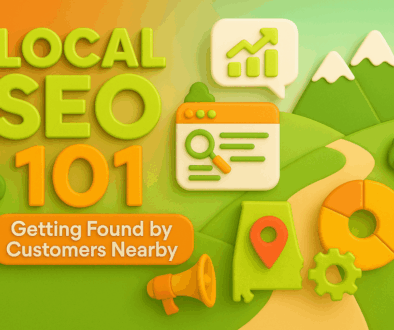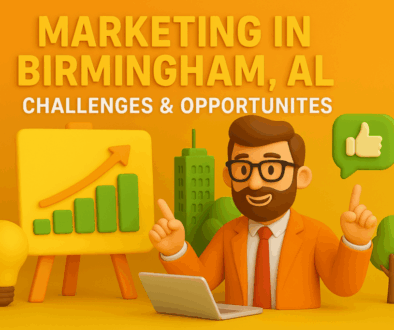Marketing is NOT Rocket Science
You know what? I’m tired of hearing it. Every time someone wants to dismiss the complexity of what we do here at Zellus Marketing, out comes that tired old phrase: “Come on, Carl, it’s not rocket science.”
Well, you’re absolutely right. It’s not rocket science. And thank Rocket Raccoon for that, because if it were, half the people trying to do marketing these days would have blown up the launch pad by now.
The Beautiful Simplicity of Actual Rocket Science
See, here’s the thing about rocket science – it’s actually pretty straightforward. You calculate thrust, you account for gravity, you aim for space. Sure, there are a few million variables, but at least the laws of physics are consistent. Newton’s laws don’t suddenly change because Mercury got a software update or because some influencer posted a TikTok about how gravity is “so last century.”
Marketing, on the other hand? Oh, that’s where the real complexity lives, my engineering friends.
Welcome to the Chaos
In rocket science, if you miscalculate the fuel mixture, you get an explosion. In marketing, if you miscalculate your target audience, you get… well, also an explosion, but it’s your budget that goes boom, and somehow it’s always your fault even when the client insisted on targeting “everyone aged 18-65 who breathes air.”
Rocket scientists get to work with predictable variables. Marketers? We get to work with humans. And humans, bless their hearts, are about as predictable as Alabama weather in April. I’m starting to think of just building a bed in my master bedroom closet with all these tornadoes lately.
The “Simple” World of Consumer Psychology
“Just make people want to buy our product, Carl. How hard can it be?”
Oh, I don’t know, maybe about as hard as figuring out why your cousin Jimmy will spend $200 on a limited-edition energy drink but won’t pay $20 for a quality meal. Or why that same demographic that swears they hate advertisements will watch a 30-minute YouTube video about the “best ads of the Super Bowl.”
At least rocket scientists don’t have to deal with focus groups. Can you imagine? “Well, the rocket looked great, but the flames weren’t quite the right shade of orange for our brand guidelines.” Or worse, “I think the rocket needs more… pop!”
The Ever-Changing Landscape
NASA’s been using roughly the same principles to get to space for decades. Meanwhile, I wake up every morning to find out that Facebook has changed its algorithm again, Google has decided that everything we knew about SEO is wrong, and apparently, we’re all supposed to be marketing on some new platform called “LinkedTok” or “TikkedIn” or whatever the kids are using this week.
Rocket scientists get to work with constants. Marketers work with an industry that changes faster than a toddler’s mood after missing nap time.
The Real Rocket Science
You want to know what’s actually harder than rocket science? Try explaining to a client why their brilliant idea to use Comic Sans font in their luxury car advertisement might not resonate with their target demographic. Or convincing them that no, putting more exclamation points in the headline won’t actually increase sales, despite what their nephew Brad told them about “experiential marketing.”
At least when rocket scientists fail, they know exactly what went wrong. When a marketing campaign fails, it’s because of “market conditions” or “consumer sentiment” Everything except the client’s insistence on making their logo bigger.
The Art of Managing Expectations
“Carl, we need this campaign to go viral.”
Sure thing, boss. Let me just fire up the viral machine in the back office. Right next to the guaranteed-ROI printer and the customer-loyalty-generator 3000.
Rocket scientists have it easy. They either make it to space or they don’t. Success is binary. Marketers, though? We get to explain why a 200% increase in Google visibility didn’t yet translate to sales, and somehow make it sound like good news.
The Human Element
Here’s the thing rocket scientists don’t have to worry about: their fuel doesn’t have opinions, their trajectory doesn’t care about trending hashtags, and their landing site doesn’t suddenly decide it identifies as something completely different.
But marketers? We’re dealing with consumers who will research a product for three weeks, read 47 reviews, compare prices across 12 websites, and then buy based on which box has the prettiest colors. These are the same people who will passionately defend their choice of breakfast cereal like it’s a religious belief.
The Launch Pad
So yes, marketing is absolutely not rocket science. But it’s still hard in it’s own ways.
Rocket scientists get to work with predictable physics, stable variables, and outcomes that make sense. Marketers get to work with humans, emotions, and algorithms designed by other humans who clearly never had to explain why a 30-second video about soap made someone cry.
But hey, at least when we fail, we don’t create a giant fireball visible from space.
Carl Holden is the CMO of Zellus Marketing in Huntsville, Alabama, where he spends his days proving that marketing is, indeed, more complicated than rocket science. He can be reached at carl@zellusmarketing.com, but only if you promise not to ask him to “make it go viral.”



